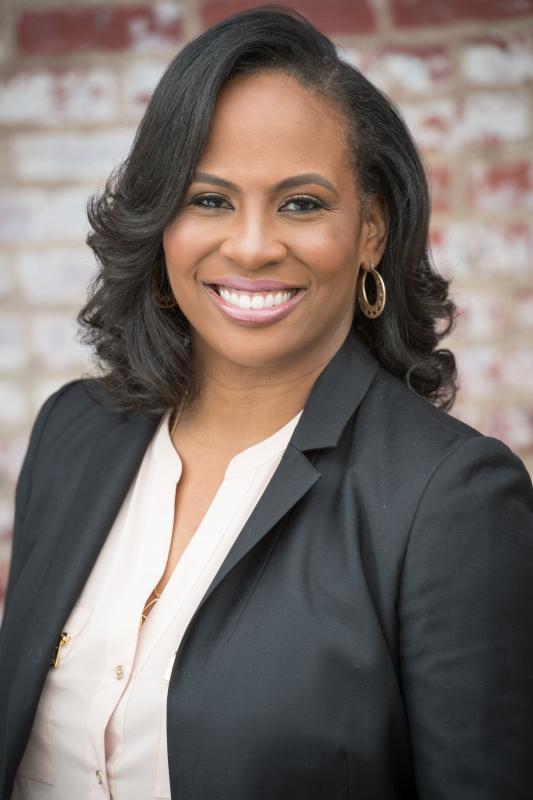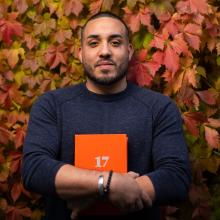A Conversation with Kamilah Forbes, National Council on the Arts Member

Kamilah Forbes. Photo by Shahar Azran, courtesy of Apollo Theater
As a kid in Chicago, Illinois, Kamilah Forbes’ parents made sure that their family took advantage of the booming art scene, whether it was the city’s free summer music festivals, the museums, like the Du Sable Black History Museum and Arts Institute of Chicago, or the public art by major artists embedded in the city’s landscape. As Forbes described during our interview, “It was never about finding art; it was only about recognizing it.” This childhood immersion in the arts led Forbes to an early understanding of the arts as a vehicle for, as she puts it, “changing minds and hearts.” An award-winning director and producer for theater and television, Forbes, an HBCU grad, is currently the executive producer at Harlem’s famed Apollo Theater. Among other things, we spoke with her about how attending Howard University shaped her view of the arts, the importance of hip hop in the larger culture, and the two litmus tests that a project must pass to get her to say yes.
NEA: What was your journey to working in the arts? Did you engage with the arts as a child?
KAMILAH FORBES: As a kid, my parents tried to expose me to as much culture and arts as they could. I played piano when I was growing up, and I did plays in high school. When I went to college, I studied theater because I was really passionate about the arts, but also passionate about what I believe that the arts could do—the idealism of the arts really changing minds and hearts. That's what drove my passion and, quite frankly, what continues to drive my passion as an artist and arts worker. I realized when I was in college that I loved producing the work. There was something really magical about [thinking about] how to bring the creativity and the intentionality that we're doing onstage into the way in which we're making the work, to make that just as vibrant and intentional.
NEA: In what ways do you think attending Howard University, which is an HBCU (historically Black college and university), informed your relationship with the arts?
FORBES: Culture is just an expression of who we are as people, right? It's an expression of our individuality, but it's also an expression of our identity. At an HBCU, that's what's being reinforced all day, not just our collective identity as Black people in the diaspora but also our individual identity. I felt like my stories were consistently affirmed, my history was consistently affirmed in that space. I was never trying to prove myself or my worthiness to any of my peers. It was such a rich and supportive environment for me as a young artist finding my voice.
NEA: One of the threads that runs through a lot of what you've done is hip hop. Can you talk about the importance of that genre to your work?
FORBES: Hip hop was the voice of my generation. The voice, the culture, the texture, the thread of my generation growing up. To me, it represents the voice of youth, the voice of dissent. It represents the voice of Black cultural dissent. And outspokenness. And protest.
NEA: You talk about hip hop being a voice of dissent. How does that square with hip hop recently being spotlighted at the Super Bowl?
FORBES: It's interesting because I think so many of our Black musical forms have pushed to the mainstream; hip hop is one example. It’s in the same lineage of jazz and R&B and Motown. It has become pop culture and mainstream. Quite frankly, the cultural movements that we have created that have existed in the past on the fringes somehow always eventually move into the center. And, you know, Black American music is American music. So that's what I think hip hop being represented at the Super Bowl represents. This is an American folk art. It is an American folk tradition. The Super Bowl is an American pastime, and hip hop sits within that same lineage.
NEA: The Apollo Theater, where you are the executive producer, is such an iconic place. Can you talk about stewarding that legacy and your vision for the institution.
FORBES: We’re talking about an 88-year-old institution that's globally recognized, and that’s a huge responsibility—telling the story right, getting the history right. Making sure that what we're doing stands up to the legacy of the Apollo and the weight of its name. We look at ourselves as a national cultural institution for Black culture. Who are those contemporary artists who are pushing the culture forward today? And how do we make sure that we are using our resources to provide a platform for them? That's our job as the Apollo today in 2022. How are we creating those works that will be a part of the canon tomorrow, that we will talk about 50 years from now, 60 years from now, 70 years?
NEA: As a producer, director, curator, you're in demand. How do you decide what to say yes to?
FORBES: Whatever moves my soul. That's it. It has to move my soul. When I read [a project], I have to feel as though I'm being moved or transformed. That's when I know I have to work on it. Period. Does it move my soul? And does it change the conversation? Those are my two litmus tests.
NEA: Looking through the eyes of a curator who works in the presenting field, what do you want to see more of? What's missing?
FORBES: I want to see more diversity of thought, of aesthetics, of representation. We talk about it a lot. But I want to see it take place.
NEA: You’ve recently been appointed to the National Council on the Arts. I know it's a new role for you, but how are you thinking about your responsibilities as a member of the council? And why do you think the federal government should invest in the arts?
FORBES: Well, I think it's important that all of us [on the council] are able to bring all of our experiences, our cultural practices, our cultural cohort to the table. I think that's a big part of my work. I think the federal government needs to invest far more than they do in the arts. So that's number one. I'm going to quote my good friend Mark Bamuthi Joseph. He says that art creates culture, and culture affects policy. We've seen that time and time again in every cultural movement within our history. With every cultural movement, there is an artistic outgrowth that somehow affects the cultural thinking. We think about the civil rights movement in 1864, and 1964, and how the art of that time affected how people thought about African Americans, how people talked about the movement, and ultimately, that soundtrack became the best vocal campaign I think anyone could ever pay for. It ultimately affected the minds of people, voters. It’s no secret that during the time under Reconstruction the film that was being played in the White House was Birth of a Nation. So there's no surprise when those Reconstruction laws were immediately rolled back and the birth of Jim Crow happened immediately after. That was art affecting culture affecting policy. Part of our participation within this democracy is to support art and culture because this is a reflection of who we are as a people, how we think, how our minds are shaped. Our individual and collective thought is shaped by the art which we consume.





